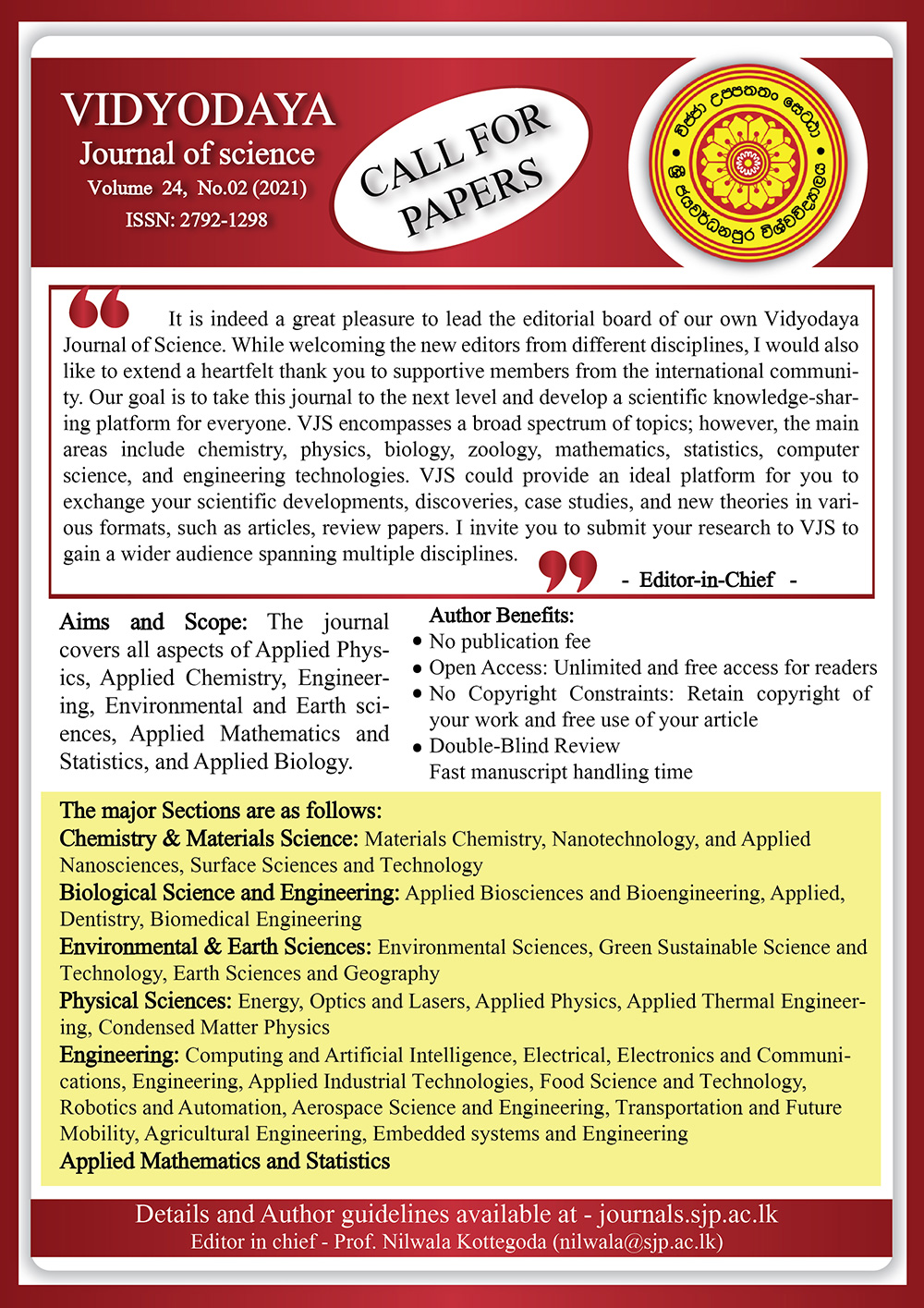Seasonal Fluctuation and Population Distribution of Otocryptis wiegmanni, Wagler, 1830 (Reptilia: Agamidae) Inhabiting a Tropical Lowland Rain Forest of Sri Lanka
DOI:
https://doi.org/10.31357/vjs.v21i1.3608Abstract
The seasonal fluctuations of population density and distribution of Otocryptis wiegmanni inhabiting indifferent habitats of the Yagirala forest reserve of Sri Lanka was investigated during the north-east, first inter-monsoon, south-west and second inter-monsoon seasons of the year 2014. Three linear transacts, each measuring 200 m in length were marked along the natural forest, degraded forest and riverine forest habitats. All transects were surveyed by visual encounter survey (VES) method. Ambient temperature, relative humidity, canopy cover and leaf litter moisture content were measured in three points of each transect (50, 100 and 150 m) and the monthly total rainfall data was obtained from Meteorological Department. The highest mean adult population density and the highest number of juveniles were recorded during the relatively dry north-east monsoon season. O. wiegmanni preferred the degraded forest habitat (0.027±0.020 lizards/m2) compared to the natural (0.007 ± 0.006 lizards/m2) and riverine forest habitats during all four climate seasons. Fluctuations in the population density varied according to season and habitat conditions. This species fed mostly on insects of the Orders Orthoptera, Coleoptera and Hymenoptera, and the common breeding season was during the north-east monsoon (NEM) in January-February period.
Key words: Yagirala forest reserve, agamid, kangaroo lizard, habitat preference



